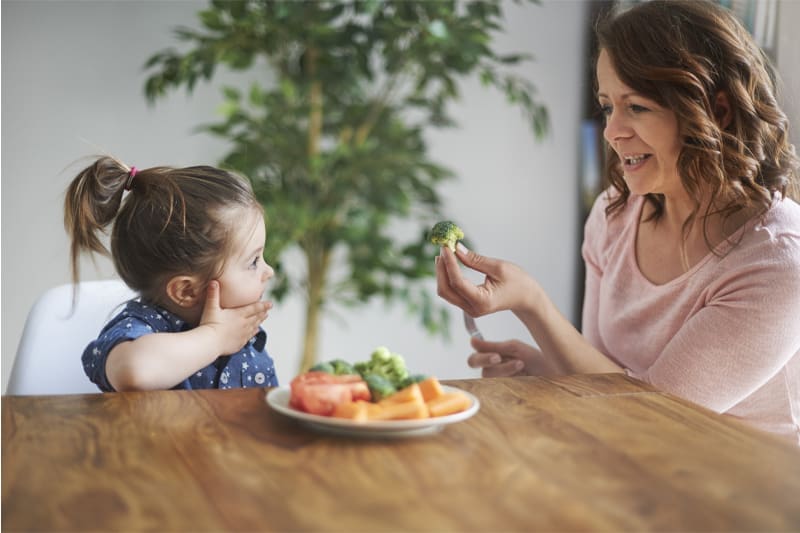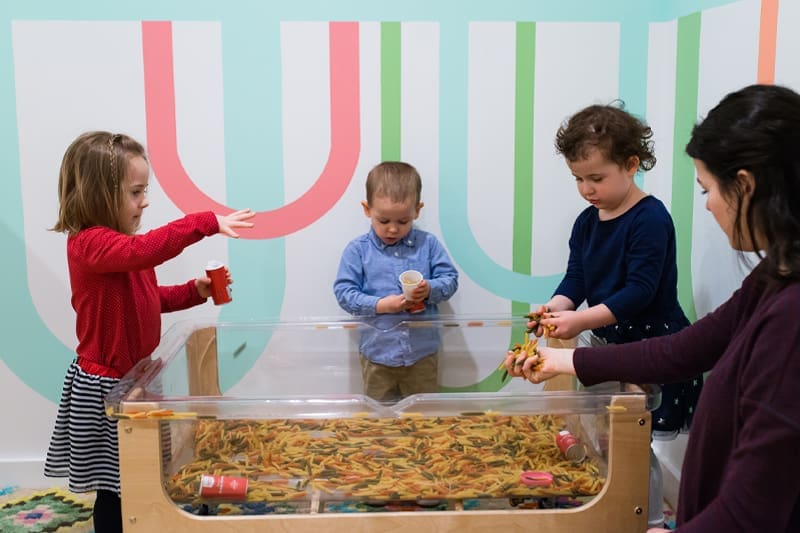Texture Aversion
at CST Academy
Gentle Support. Confident Eating. One Texture at a Time.
At CST Academy, our feeding therapy program includes specialized support for texture aversion, helping children overcome strong reactions to the way food feels in their mouths. Whether your child refuses mushy foods, gags on crunchy textures, or avoids entire food groups based on how they feel, our expert therapists provide compassionate, individualized care. Through play-based sessions and sensory-friendly strategies, we help your child build confidence and comfort with a wide range of food textures—one bite at a time.
Get Started

What Is Texture Aversion?
Texture aversion is a form of feeding difficulty where a child reacts negatively—often intensely—to the feel of certain foods in their mouth. This can include gagging, spitting, crying, or complete refusal to eat certain textures like purees, meats, or crunchy snacks. These reactions are often rooted in sensory processing challenges or oral motor sensitivities.
At CST Academy, we identify the underlying causes and use evidence-based techniques to gently and gradually help children tolerate, explore, and accept new food textures. The goal is not just to expand their diet, but to build a healthier, more positive relationship with food.
At CST Academy, we identify the underlying causes and use evidence-based techniques to gently and gradually help children tolerate, explore, and accept new food textures. The goal is not just to expand their diet, but to build a healthier, more positive relationship with food.
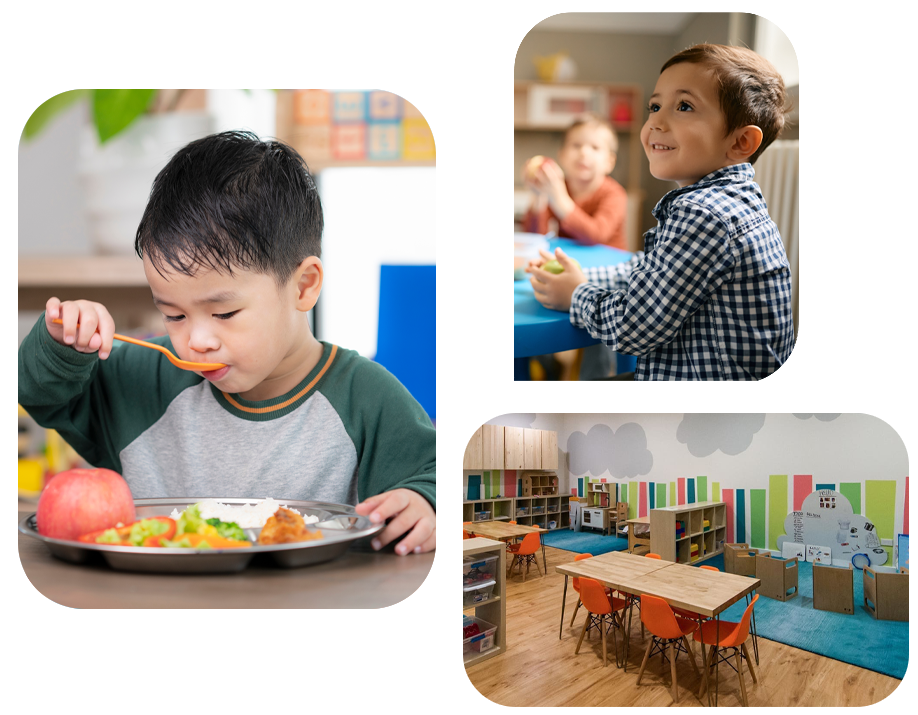
Why Choose CST Academy for Feeding Therapy?
Feeding therapy at CST Academy goes far beyond what’s on the plate. Our team understands that mealtimes are emotional, sensory, and social experiences—especially for children with texture aversion. We build a therapy plan tailored to your child’s needs, learning style, and pace.
With therapists who collaborate across disciplines and communicate clearly with families, CST Academy delivers coordinated care that helps children succeed both in and out of the therapy room.
With therapists who collaborate across disciplines and communicate clearly with families, CST Academy delivers coordinated care that helps children succeed both in and out of the therapy room.
The CST Academy Difference
Choosing the right feeding therapy provider for texture aversion means finding a team that truly understands your child’s sensory challenges—and knows how to guide them with care. At CST Academy, we go beyond typical approaches by creating a safe, engaging space where children can explore new foods at their own pace. With expert therapists, personalized plans, and a gentle, play-based method, we help each child build confidence, expand their comfort zone, and rediscover the joy of eating.
Helping Your Child Overcome Texture Aversion
At CST Academy, we support children in gently and gradually overcoming aversions to food textures. Our goal is not just to increase the number of foods your child eats—but to help them feel safe, confident, and curious when exploring new textures.

Tolerating and Exploring New Textures
We begin by helping children become comfortable simply being around foods with challenging textures—through touch, smell, and visual interaction. This builds familiarity and reduces anxiety before a child is ever asked to taste.
Improving Sensory Processing in the Mouth
Many children with texture aversion have heightened sensory sensitivity. We use fun, therapeutic activities to help regulate their responses, allowing them to better tolerate the sensations associated with various textures.
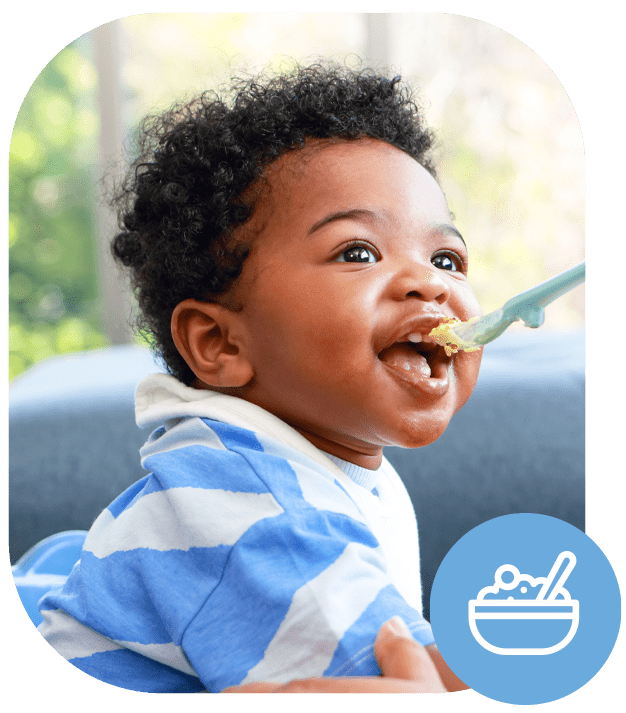
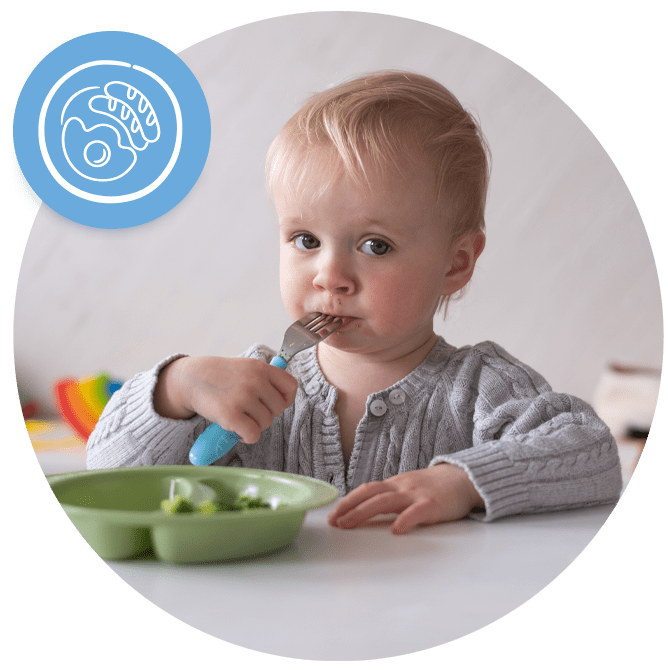
Expanding Food Variety and Acceptance
Through structured exposure and repeated practice, we help children slowly add new foods to their diet—starting with tiny tastes and building up to full servings. Each step is celebrated to build confidence and momentum.
Reducing Gagging and Oral Defensive Reactions
Children who gag or spit out food due to texture often need support in desensitizing their oral sensory system. Our therapists introduce these sensations gradually, helping children feel more in control and less reactive at mealtimes.
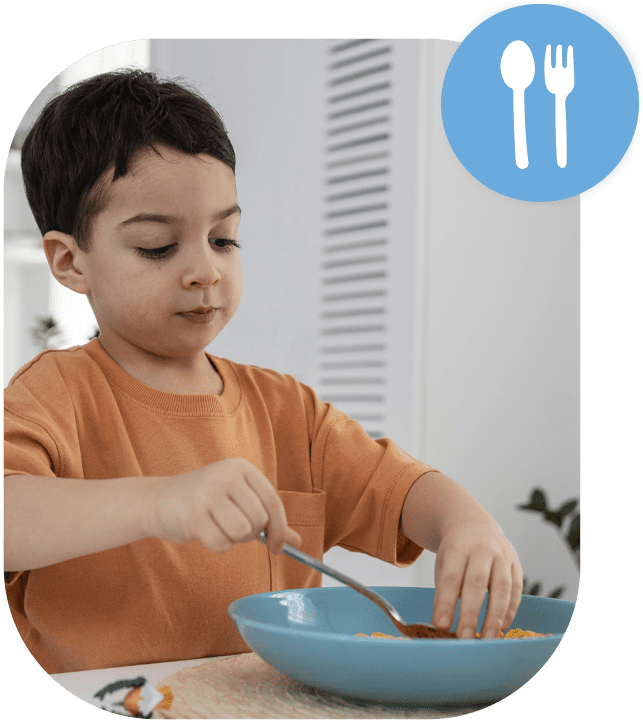
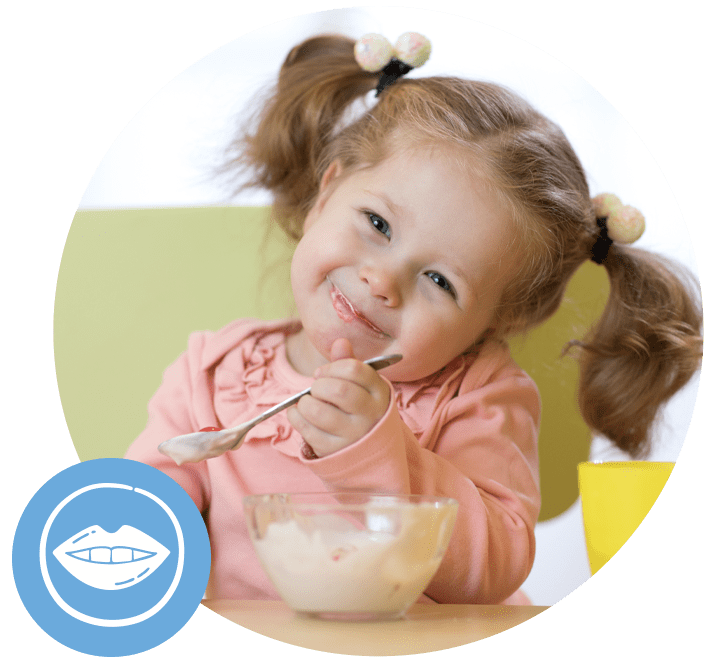
Strengthening Oral Motor Skills for Better Management
In some cases, texture aversion is made worse by difficulty chewing or coordinating food in the mouth. We incorporate oral motor exercises to improve chewing strength, tongue movement, and safe swallowing.
Creating Positive, Stress-Free Mealtime Habits
Therapy sessions focus on reducing pressure and making food exploration fun. Our goal is to replace fear and frustration with curiosity and pride—creating long-term comfort with a wide range of foods and mealtime routines.
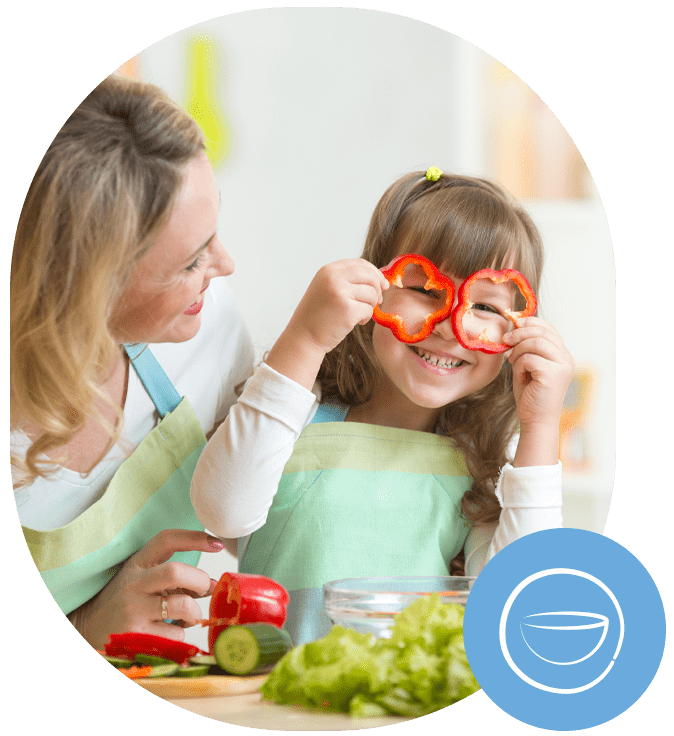
Start Your Journey with CST Academy Today
Getting started is easy. Our team is here to listen, guide, and create a care plan tailored to your child and your family.
"*" indicates required fields
When to Seek Support for Texture Aversion
Here are some common signs that may indicate your child is struggling with texture aversion and may benefit from feeding therapy. Every child is different, but early support can help reduce stress, expand food choices, and improve mealtime success.
Gagging or Vomiting When Trying Certain Foods
If your child frequently gags, spits out food, or vomits when eating specific textures—like mushy, crunchy, or mixed foods—it may be a sign of heightened oral sensitivity.
Extreme Food Selectivity by Texture
Children with texture aversion often have a limited diet based on how foods feel. If your child avoids entire categories of textures (e.g., only eats crunchy foods or avoids anything soft), support may be needed.
Refusal to Try New or Mixed-Texture Foods
If your child becomes anxious, upset, or refuses to try foods that have unfamiliar textures—or foods that combine multiple textures, like casseroles or sandwiches—they may be experiencing aversion.
Long Mealtimes or Mealtime Battles
Prolonged meals, power struggles at the table, or refusal to eat more than a few safe foods can be signs that your child’s texture aversion is interfering with their daily routine.
Delayed Transition from Purees to Solids
If your toddler resists moving from baby foods to more textured solids—or regresses when offered new textures—it may indicate oral sensory challenges that warrant intervention.
Nutritional Concerns or Growth Delays
A highly restricted diet based on texture can lead to vitamin deficiencies, low energy, or poor weight gain. Feeding therapy can help broaden food variety while supporting your child’s health and development.
Empowering Children to Explore Food Without Fear
Choosing CST Academy means choosing a place where your child’s feeding journey is met with patience, understanding, and celebration. We recognize that every child experiences food differently, and we honor those differences by creating a supportive space where they can explore at their own pace—without pressure or fear.
We know that texture aversion can make everyday meals feel overwhelming, but therapy doesn’t have to be. At CST Academy, we focus on building trust, confidence, and curiosity through fun, sensory-informed experiences. Every small step is a victory, and we’re here to cheer your child on as they grow stronger, braver, and more confident—one bite at a time.
We know that texture aversion can make everyday meals feel overwhelming, but therapy doesn’t have to be. At CST Academy, we focus on building trust, confidence, and curiosity through fun, sensory-informed experiences. Every small step is a victory, and we’re here to cheer your child on as they grow stronger, braver, and more confident—one bite at a time.

Real Families. Real Progress. One Texture at a Time.
Our daughter used to cry at the sight of certain foods and refused to eat anything soft or mixed. CST Academy was incredibly patient and supportive. Now, she’s eating more variety than we ever imagined—and mealtimes are calm and enjoyable again.
– Lauren D.
Our son had such strong reactions to different textures that we were worried he wasn’t getting enough nutrition. CST Academy made us feel heard, gave us a clear plan, and celebrated every small win with us. He’s now trying new foods every week!
– Jason M.
We had tried everything on our own to help our child with texture sensitivity, but nothing worked until we found CST Academy. Their therapists were kind, consistent, and made the process feel manageable. Our child is thriving—and so are we.
– Erica S.

Feeding Therapy for Texture Aversion at CST Academy
Gentle, Sensory-Informed Support for More Comfortable Mealtimes
At CST Academy, our Feeding Therapy program includes specialized treatment for texture aversion, helping children gradually build tolerance and comfort with a wider variety of foods. Using a play-based, pressure-free approach, our expert therapists guide children through sensory exploration and oral motor development tailored to their unique needs. CST Academy’s collaborative, family-focused care model ensures that every child is supported with patience, compassion, and evidence-based strategies that make real progress possible.
Feeding Therapy
Get Started
Frequently Asked Questions
About Texture Aversion
Texture aversion is a sensory-based feeding challenge where children strongly dislike or avoid foods based on how they feel in the mouth—such as mushy, crunchy, or mixed textures. It can lead to food refusal, gagging, and extremely limited diets.




